On Friday, September 20th, three student groups from the Sam Fox School co-hosted an event on the Delmar Loop to celebrate Park(ing) Day.
Park(ing) Day is an annual, international event where parking spaces are converted into temporary parklets, or miniature parks, in order to creatively make new forms of public space. The event started in 2005, and since then has gained acceptance and notoriety worldwide. WashU’s installment was just one of many in the St. Louis area.
The goal of this ephemeral transformation is to “re-envision the streetscape and bring people in to see what the space could be like” by constructing it in a more community-centered way, according to Brooke Bulmash, the student coordinator of the event and a junior majoring in architecture and minoring in landscape architecture.
This year’s setup featured flowers, tables stocked with painting supplies, chairs, games such as giant checkers, and even live music by WashU sophomore Lacy Wilder, all in the space of two on-street parking spaces and a portion of the sidewalk. This was WashU’s first enactment of Park(ing) Day since 2017. It was organized by Alpha Rho Chi, the WashU chapter of the American Society of Landscape Architects (ASLA), and ArchEngage with support from Trailnet, Blick Art Materials, the Delmar Loop Community Improvement District, and the Office of Socially Engaged Practice.
Park(ing) Day allows residents and visitors to (re)claim “the metered parking space as a rich new territory for creative experimentation and activism,” according to the ASLA website. The organization encourages participants to broaden their views of what a park could be, and suggest functions such as community gardens, centers for dignified services for the homeless, poetry readings, or even spaces to just relax and socialize.
Even the densest American cities have an overabundance of parking spaces. According to a recent study, there are 1.6 million parking spaces in Seattle, or 5 per household. Des Moines, Iowa has the same number of spaces, which equates to 19.4 spaces per household. Frequently, this parking is free, meaning that a significant fraction of most cities’ land area is dedicated to free private vehicle storage.

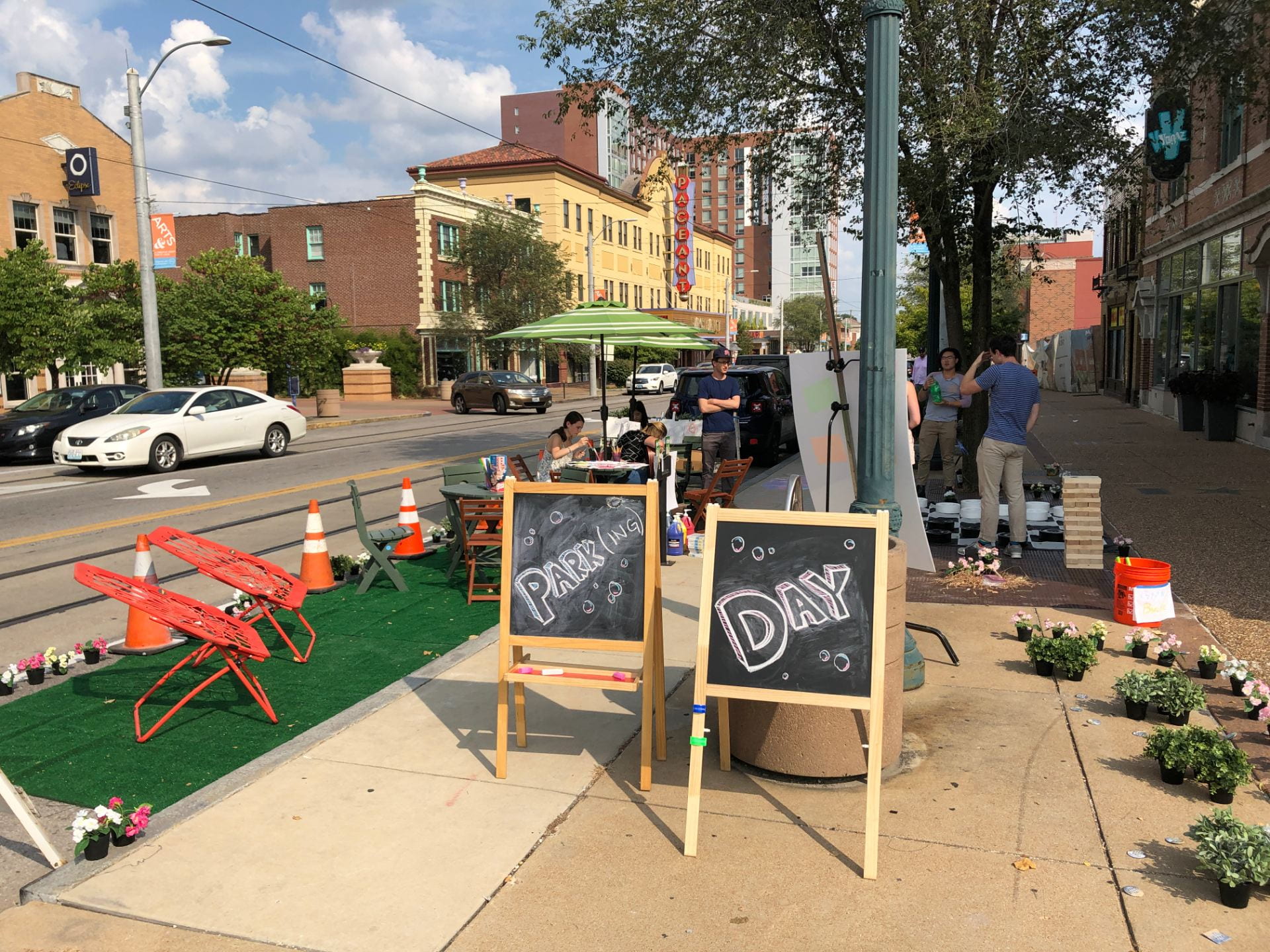


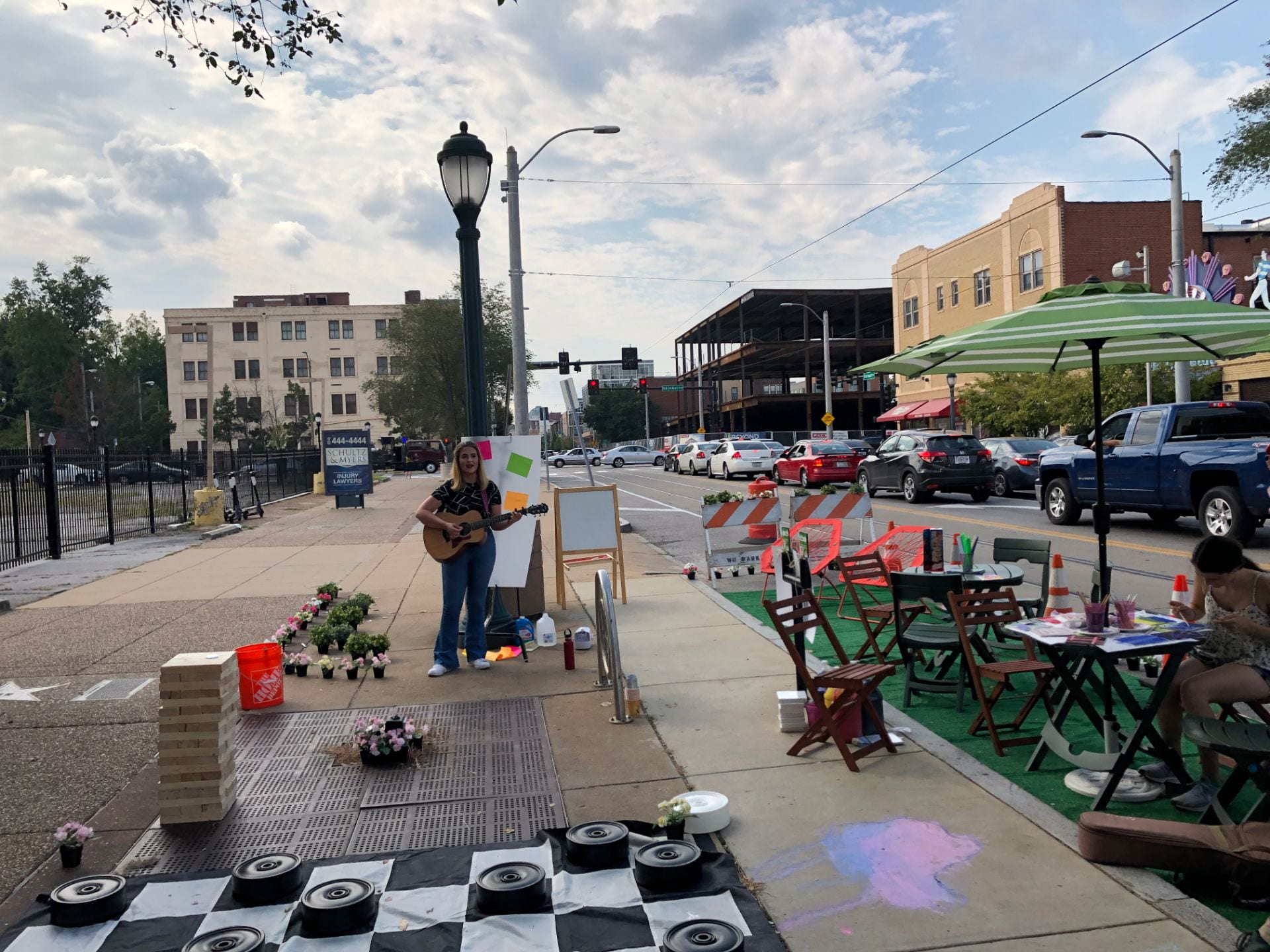
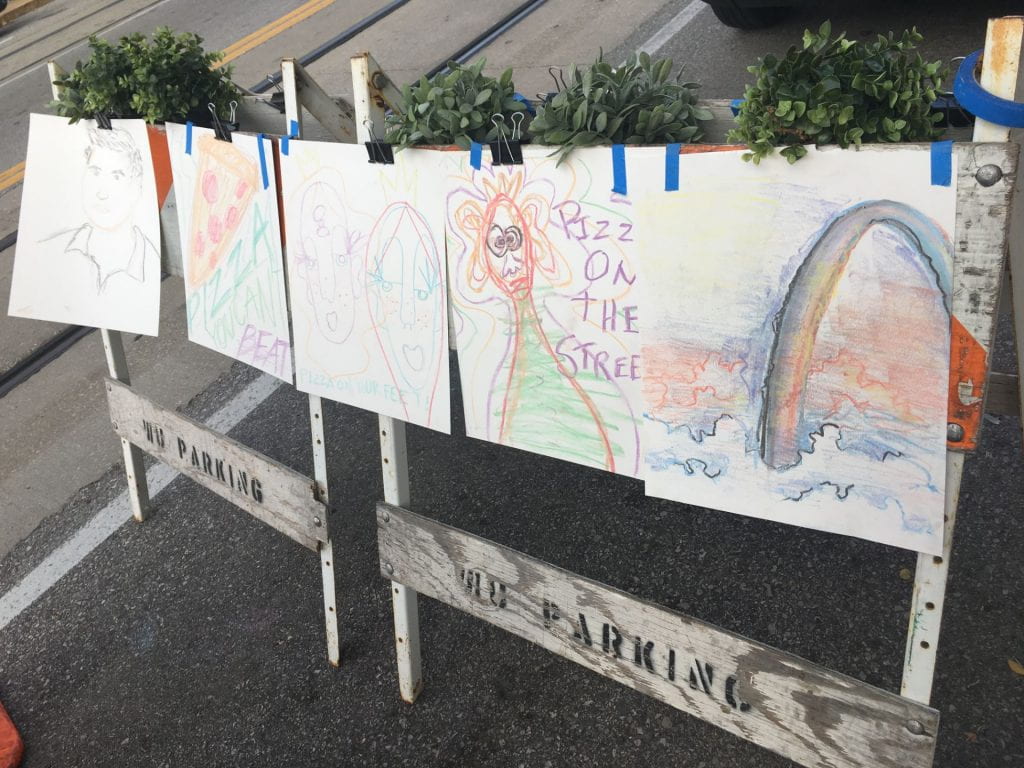
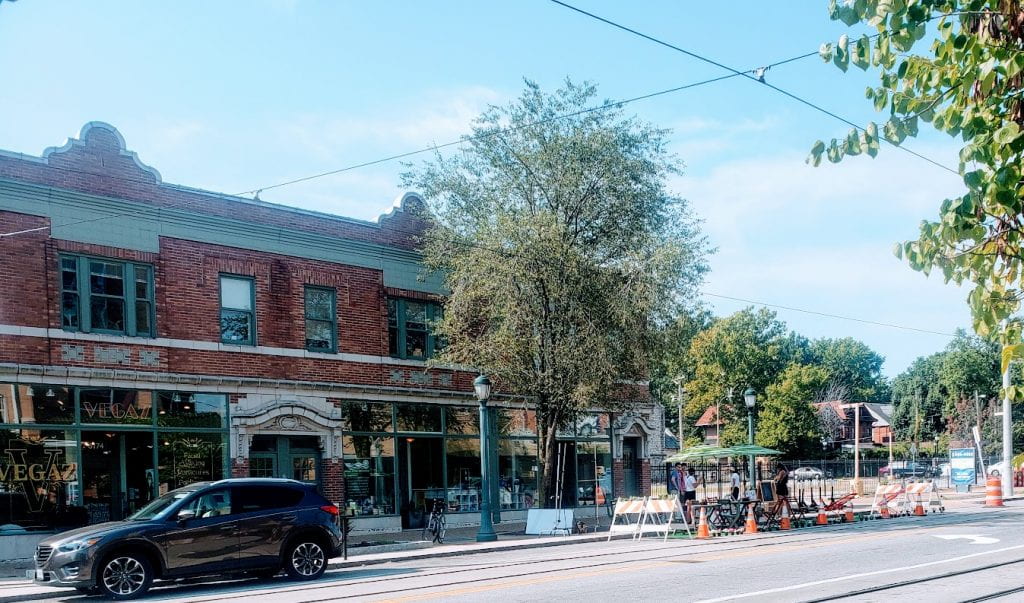

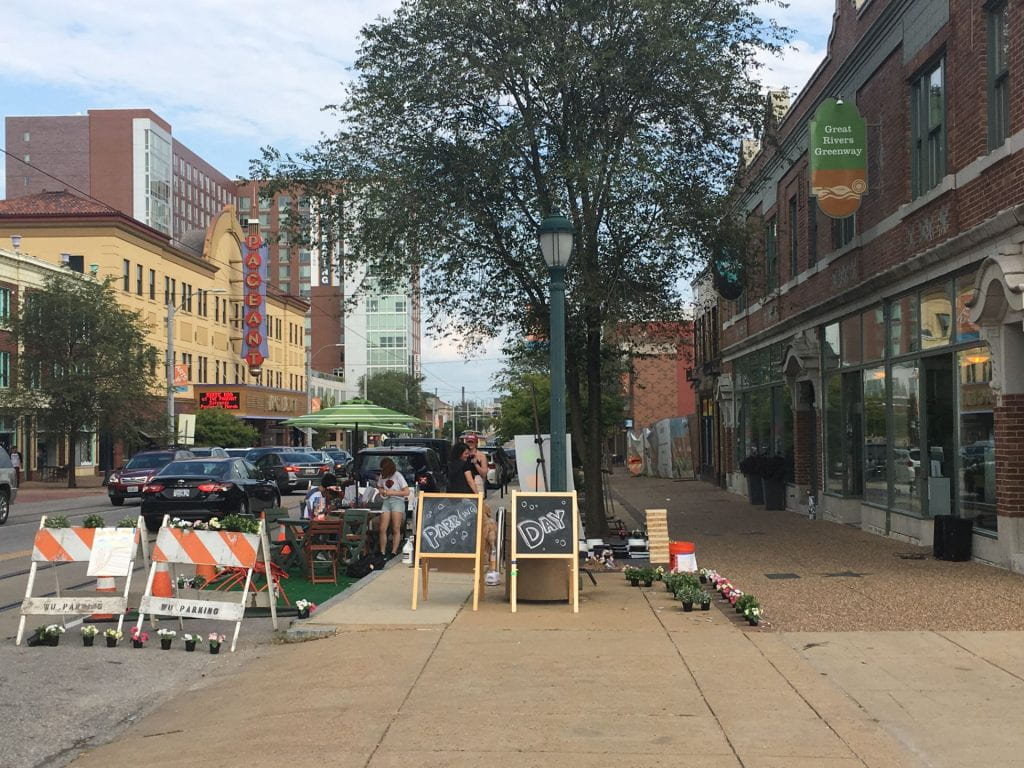
This article was written by Noah Hagen, Alternative Transportation Associate at the Office of Sustainability.
